Aneurin Bevan
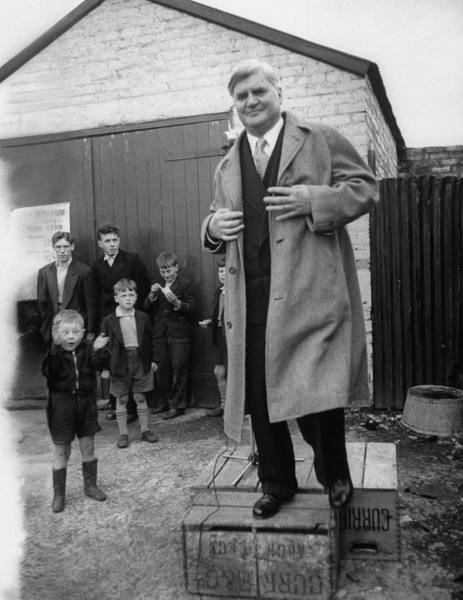
ANEURIN BEVAN, a Labour politician from Tredegar widely regarded as the architect of the National Health Service – a rock for British people during the Covid-17 pandemic – is a genuine Welsh hero.
So much so that, in 2004, more than 44 years after his death, he was voted No 1 in a list of 100 Welsh Heroes for his contribution to the founding of the welfare state in the UK.
Bevan’s death in 1960 led to “an outpouring of national mourning”. His friend Michael Foot, who succeeded him as MP for Ebbw Vale, captured the significance of this reaction in his biography: “What the nation mourned was the tragedy which mixed with the brilliance and the genius, and what it did in expiation was to acknowledge his unique place in our history.”
When introducing the National Health Service Bill in the House of Commons, Bevan declared: “I believe it will lift the shadow from millions of homes.”
In his book, In Place of Fear, published in 1952, Bevan stated: “Society becomes more wholesome, more serene, and spiritually healthier, if it knows that its citizens have at the back of their consciousness the knowledge that not only themselves, but all their fellows, have access, when ill, to the best that medical skill can provide.”
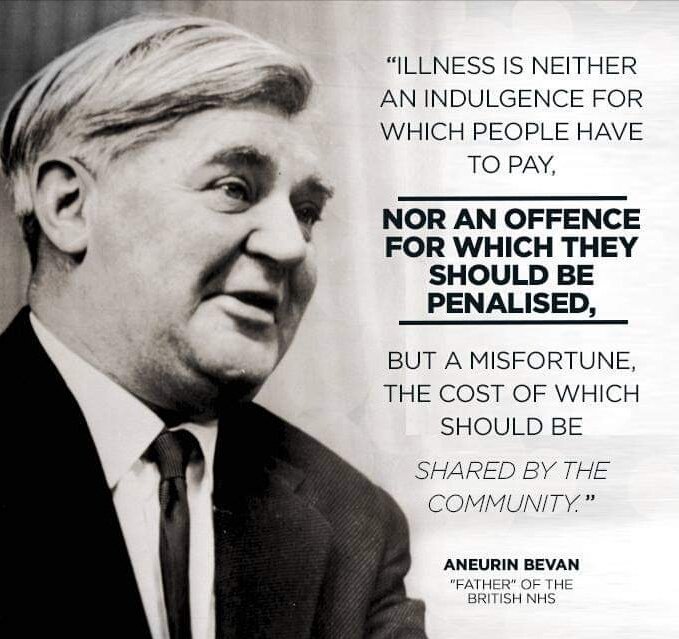
Nick Thomas-Symonds, Labour MP for Torfaen, a biographer of Aneurin Bevan and the chair of the Aneurin Bevan Society, wrote of the National Health Service in 2018:
“Providing reassurance to people has been a guiding purpose of the NHS since it first came into operation on July 5, 1948. At that time, the Government sent a leaflet to every house in the country with a simple message about its impact: ‘It will relieve your money worries in time of illness’.
“For the then Minister of Health and Housing, Aneurin Bevan, the creation of the NHS proved far more significant than a personal triumph. His work created a lasting institution that changes the lives of millions.
“The principle of healthcare free at the point of delivery based on need, not wealth, became firmly embedded into our national life.
“Though this was important, Bevan always insisted that the NHS was something far greater. With the NHS there for those in need, people could enjoy life untroubled by a fear of falling upon tragic times through ill-health.”
This goal of transforming society was no doubt born out of Bevan’s earlier life. He played down his role as a politician, preferring to think of himself as “a projectile discharged from the Welsh valleys”.
Born into a working-class family on the eastern side of the south Wales coalfield, he was the son of a coal miner. He left school at 13 and helped in the mines during his teens where he became involved in local union politics. He was named head of his local Miner’s Lodge aged just 19.
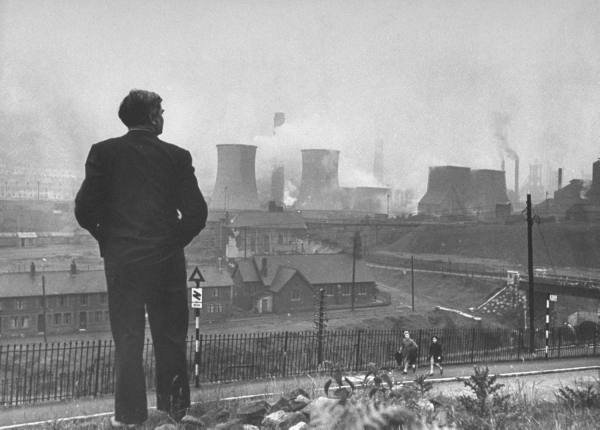
He won a scholarship to the Central Labour College in London, sponsored by the South Wales Miners’ Federation.
On his return to Wales in 1921, his reputation made it difficult for him to find work in local collieries, but in 1926 he became a full-time officer of the Miners Federation. During the 1926 General Strike, Bevan emerged as one of the leaders of the south Wales miners.
He was involved with the local provision of health services for miners and their families. This was through the Tredegar Medical Aid Society and he was to draw on this model of health service provision in future years.
He was a member of the Society’s Cottage Hospital Management Committee in 1928 and chairman in 1929/30. There he saw, in action, what could be achieved by people collecting together to provide healthcare services.
Bevan won a seat on Monmouthshire County Council and was elected as the MP for Ebbw Vale in 1929. In Parliament, he would become a vocal critic of numerous other politicians from all parties, including Winston Churchill and David Lloyd George. His criticisms of Churchill and the Conservative Government during the Second World War raised him to national prominence.
After a landslide Labour victory in the 1945 general election, Bevan, often referred to simply as Nye, was appointed Minister of Health, responsible for establishing the National Health Service.
On July 5, 1948, the Government took over responsibility for all medical services. Despite opposition from both his own and opposition parties, as well as the British Medical Association, the National Health Service Act 1946 was passed, nationalising more than 2,500 hospitals within the United Kingdom.
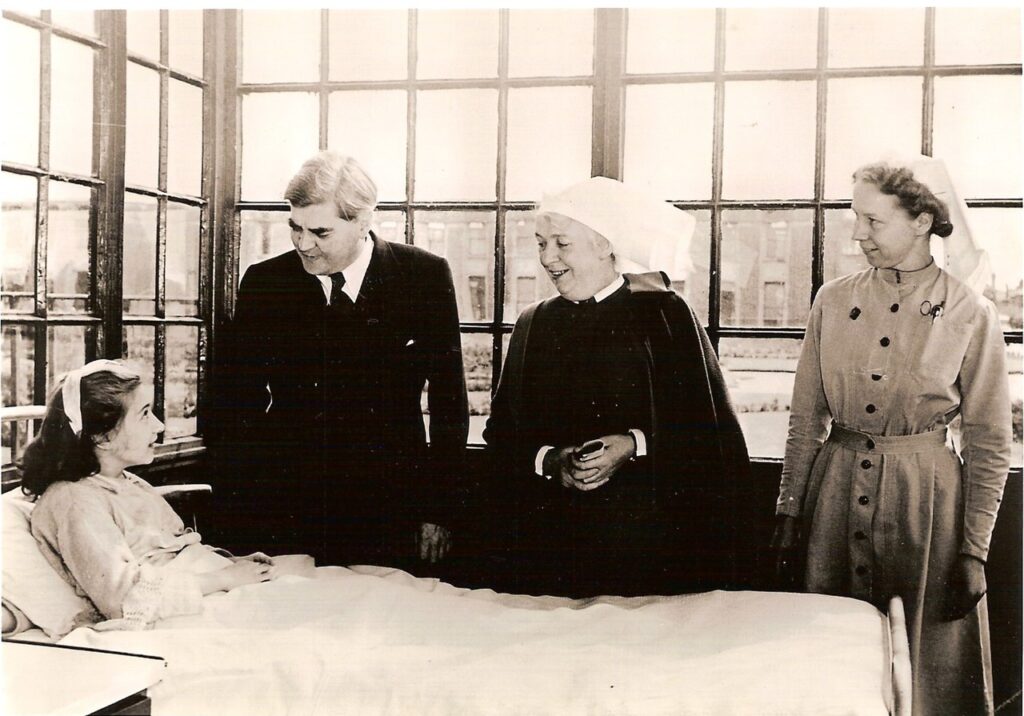
Bevan was a controversial figure in post-World War II British politics, yet one of the finest orators of the time. To achieve mastery as a speaker, he had first to overcome a speech impediment.
Throughout the War he was a vigorous critic of Churchill’s coalition government but was equally critical of his own party. From 1940 to 1945 he was editor of the independent Socialist Tribune.
A colourful public personality and a brilliant spontaneous debater, he had great personal charm but was sometimes so rude to opponents that Churchill once called him a “merchant of discourtesy”.
Thomas-Symonds noted, however: “Bevan always stood up for the underdog, and was a voice for the unemployed in the period between the two world wars when joblessness was a major domestic political issue.
“He was convinced that poverty was not the fault of individuals but that of the government’s inefficient and unfair distribution of the country’s resources. He remembered how people he knew were treated without dignity when they fell upon hard times, and his anger could boil over.
“In his speech in Manchester on the night before the NHS was established, he made his infamous remark about the Tories being “lower than vermin”. In the next sentence he referred back to the governments of the inter-war years: “They condemned millions of people to semi-starvation.”
“He thought that it should be the clear responsibility of government to provide comprehensive healthcare; consistent high-quality healthcare across the country would be best delivered by nationalisation of the hospitals.”
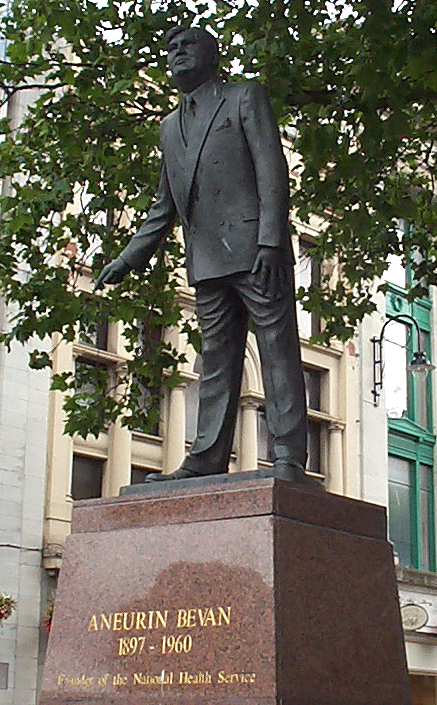
Bevan became Minister of Labour in January 1951 but resigned when Clement Attlee’s Government proposed the introduction of prescription charges for dental and vision care and decided to transfer funds from the National Insurance Fund to pay for rearmament.
A well-read man, literary references were a feature of his speeches as a politician. Speaking out against NHS charges when he resigned from the Labour government, he referenced Shakespeare’s Titus Andronicus, declaring, “The health service will be like Lavinia – all the limbs cut off and eventually her tongue cut out too.”
In the years that followed, he was often the centre of controversy within the Labour Party and involuntarily gave his name to the party’s radical wing, ‘the Bevanites’.
When Attlee retired in 1955, Bevan unsuccessfully contested the party leadership with Hugh Gaitskell, but was appointed Shadow Colonial Secretary and later Shadow Foreign Secretary. In 1959, Bevan was elected deputy leader of the Labour Party, although he was already suffering from terminal cancer. He held the post for a year until his death on July 6, 1960, at the age of 62.

The Aneurin Bevan University Health Board was established on October 1, 2009, covering the areas of Blaenau Gwent, Caerphilly, Monmouthshire, Newport, Torfaen and south Powys.
The Health Board employs over 13,000 staff, two thirds of whom are involved in direct patient care. There are more than 250 consultants in a total of over 1,000 hospital and general practice doctors, 6,000 nurses, midwives, allied professionals and community workers.
Aneurin Bevan, major political offices held:
Member of Parliament for Ebbw Vale (May 31, 1929–July 6, 1960)
Minister of Health (August 3, 1945–January 17, 1951)
Minister of Labour and National Service (January 17, 1951–April 23, 1951)
Shadow Foreign Secretary (July 22, 1956–May 4, 1959)
Deputy Leader of the Labour Party (May 4, 1959–July 6, 1960)
RETURN TO WELSH GREATS IN PROFILE
BACK TO HOME PAGE